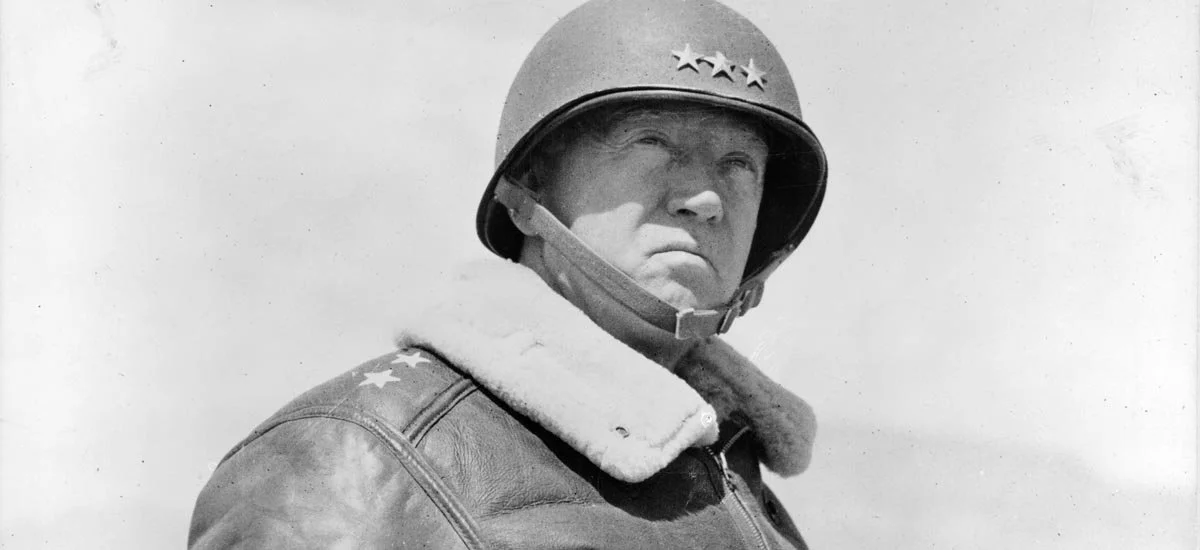Untamed Valor: A Review of Carlo D'Este's "Patton: A Genius for War"
“The object of war is not to die for your country, but to make the other bastard die for his." - George S. Patton, Jr.
Reading historian Carlo D'Este's remarkable biography of "Old Blood and Guts" General George Smith Patton, Jr. is quite the experience for military history enthusiasts and novices alike. D'Este gives us a fair, objective, brutally honest and thorough life story of one of America's most controversial military generals.
“Attack rapidly, ruthlessly, viciously, without rest. However tired and hungry you may be, the enemy will be more tired, more hungry. Keep punching." - George S. Patton, Jr.
A progeny of a military tradition family dating back to the American Civil War, Patton, like so many generals before him like Robert E. Lee and Ulysses S. Grant, was a West Point graduate possessed with a supreme genius for creating war, an unbreakable will, a killer instinct for strategy and tactical battlefield science, and absolute fearlessness on the front lines.
For Patton, these attributes were displayed early in his career.
Before the United States entered the First World War, Patton first saw combat while serving under General John J. Pershing in 1916 as mission aide-de-camp in the hunt for Mexican revolutionary Pancho Villa. A proponent of utilizing psychological aspects of warfare to demoralize and intimidate the enemy, Patton — newly promoted to lieutenant — made American headlines after word spread of his ordering the corpses of three “Villista” lieutenants be mounted to the hoods of the his unit’s terrain vehicles and paraded back to Pershing’s headquarters. It was his first taste of the limelight, and he savored every moment.
A charismatic and dynamic leader, Patton’s keen strategic vision enabled him to understand the importance of mobility, surprise and aggression, allowing him to quickly exploit enemy weaknesses. He was a brash man of action with a mercurial temper who held very little tolerance for failure. His flamboyant personality, colorful language and theatrical demeanor kept his enemies off balance, while his gruff, hard-driving nature and unwavering confidence inspired the soldiers under his command throughout World War II during the North African, Sicily and Lorraine campaigns, the Normandy breakout offensive and the Battle of the Bulge.
“War is the only place where a man truly lives.” - George S. Patton, Jr.
Patton always believed himself destined for battlefield greatness, often professing a spiritual belief in reincarnation and claiming he had seen combat many times in previous lives, including as a Roman legionnaire and while serving in the 14th-century army of John the Blind of Bohemia. During the 1943 invasion of Sicily, British General Sir Harold Alexander once told Patton, “You know, George, you would have made a great marshal for Napoleon if you had lived in the 19th century.” “But I did.” Patton famously replied.
His effectiveness on and off the battlefield elicited exceptional pride within his ranks. However, hubris, extreme egotism, shameless self promotion, dangerous ambitions and willingness to shed the blood of his own troops to achieve personal recognition upon every triumph revealed the harsh complexities of his character. Though Allied victory had been achieved, Patton’s downfall and eventual removal from command of the U.S. Third Army had become imminent.
Sadly, George S. Patton, Jr. died on December 21, 1945, succumbing to neck and spinal injuries sustained in a car accident in Heidelberg, Germany 12 days earlier.
D'Este's book is a well-researched, richly detailed and objectively balanced biography of one of the most misunderstood military leaders of the 20th century. “Patton: A Genius for War” is an intriguing biography of a soldier and man, told fairly and with great impartiality.




